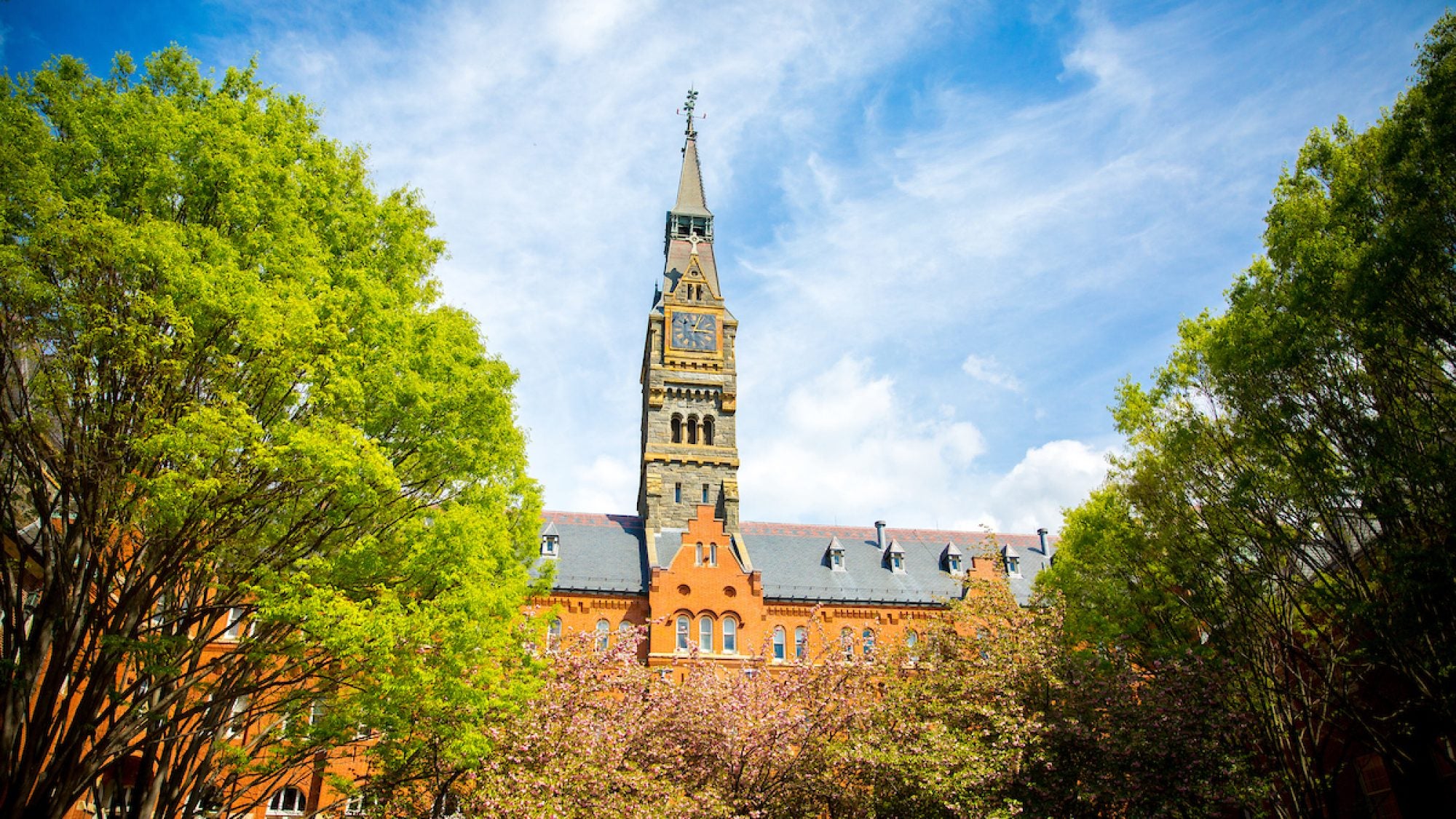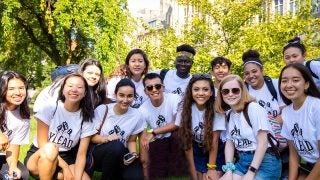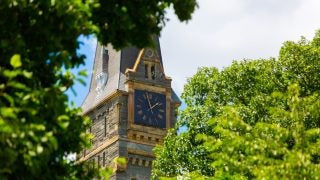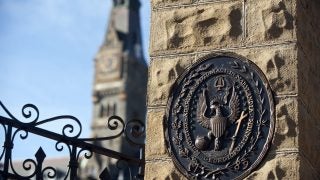The Supreme Court considered arguments in court challenges regarding admissions policies and procedures at the University of North Carolina (UNC) and at Harvard University. On June 29, in a 6-3 decision, the Court ruled that the race-conscious admissions practices of UNC and Harvard were unlawful.
“This latest decision by the Court does not change what we know to be true: diversity matters in fulfilling our obligations in preparing future citizens — future stakeholders in our democracy,” Georgetown President John J. DeGioia said in a message to the community. “We continue to be committed to taking steps to build a better future — ensuring that the full range of voices, histories and experiences are included in our academic community as we work to fulfill our mission.”
Georgetown’s Leadership in Diversity in Catholic Higher Education
Georgetown has a long history of supporting admissions practices that enhance the diversity of the student body, dating back to 2003 when it submitted an amicus brief for Grutter v. Bollinger, the landmark ruling that upheld the race-conscious admissions program at the University of Michigan Law School, and again for Fisher v. University of Texas at Austin, which affirmed the legality of the University of Texas’ admissions policies in 2016.
In 2022, Georgetown led a coalition of Catholic higher education institutions to submit an amicus brief that explained why diversity is critical to Catholic higher education missions. With 56 other Catholic colleges and universities, the university urged the Supreme Court to again uphold the legality of race-conscious university admissions practices and stressed why the admissions tool is essential to building a diverse student body.
As part of her dissenting opinion, Justice Sonia Sotomayor cited Georgetown’s amicus brief, noting that race-conscious admissions not only serve the academic goals of Catholic universities but also their religious missions.
“Classroom dynamics and the quality of the educational experience of all of our students is enhanced by the presence and engagement of racial and ethnically diverse students on our campuses,” said Rosemary Kilkenny, Georgetown’s vice president for institutional diversity, equity and inclusion and the university’s chief diversity officer. “The court’s ruling does not negate the significant body of empirical evidence developed and presented by scholars who have consistently documented the benefits of having students from all backgrounds studying and working in inclusive classrooms throughout America’s colleges and universities.”
Georgetown University was founded on the idea that healthy discourse among people of different faiths, cultures and beliefs promotes greater understanding. This idea informs the university’s 500-year-old Jesuit tradition and Catholic mission to build a diverse student body, promote diverse, inclusive learning environments and care for the whole person.
“We will review our practices to ensure that we continue to comply with the law; however, we will not waiver in supporting students of all backgrounds,” said Bisi Okubadejo, Georgetown’s associate vice president of equal opportunity, affirmative action, and compliance. “I’m looking forward to deploying all permissible measures available to us so we can benefit from the tremendous advantages that flow from a diverse campus community.”
Georgetown’s Continuing Support for All Students
Georgetown has a variety of resources and pipeline programs designed to recruit and prepare students from all backgrounds and ensure that they feel welcome at Georgetown.
These include local partnerships with organizations in the Washington, DC, metropolitan area, such as the DC Reads tutoring program, which helps elementary students develop literacy skills. Georgetown has a longstanding partnership with the Cristo Rey Network, in which a select group of students from DC’s Don Bosco Cristo Rey High School work at the university as part of its work-study program.
Georgetown also has pipeline programs for students of all ages across the nation. High school programs like the Summer College Immersion Program help prepare high-achieving students as they apply to the nation’s most selective universities. Programs for graduate students, like the Georgetown Experimental Medical Studies Program, equip disadvantaged student populations to access and thrive in medical school. The McCourt School of Public Policy’s National Urban Fellows program helps enable students of all backgrounds to pursue tuition-free graduate degrees.
In addition to developing the next generation of leaders, Georgetown has a long history of fostering student-centered programs to help Hoyas of all backgrounds feel welcome and supported. The university’s Community Scholars Program, for example, founded more than 50 years ago in response to the 1968 uprisings in Washington, DC, is one of the longest-running university programs for multicultural first-generation students.
“Creating and nurturing a vibrant student community comprising people from all walks of life is ingrained in our Catholic and Jesuit heritage,” Kilkenny said. “I look forward to continuing to advance Georgetown’s mission of helping students from all backgrounds reach their fullest potential and be people for others.”
Next Steps
In the lead-up to the decision, Georgetown senior leaders held several working sessions to prepare for the rulings and develop the university’s response. Over the next few months, academic and admissions leaders from across the university will assess how the decision will impact current programs and ensure that Georgetown continues to serve students of all backgrounds and foster an inclusive community.
Georgetown is also strengthening and improving its required curriculum on diversity, which was first established in 2016, to ensure continued alignment with its Catholic, Jesuit identity and to ensure that students learn about Georgetown’s history with enslavement.
“Affirmative action was built on hope — the hope that we could be better in the future than we’ve been in the past,” DeGioia said. “Georgetown embraced this hope. Now, we will need to find new ways of restoring this hope.”



